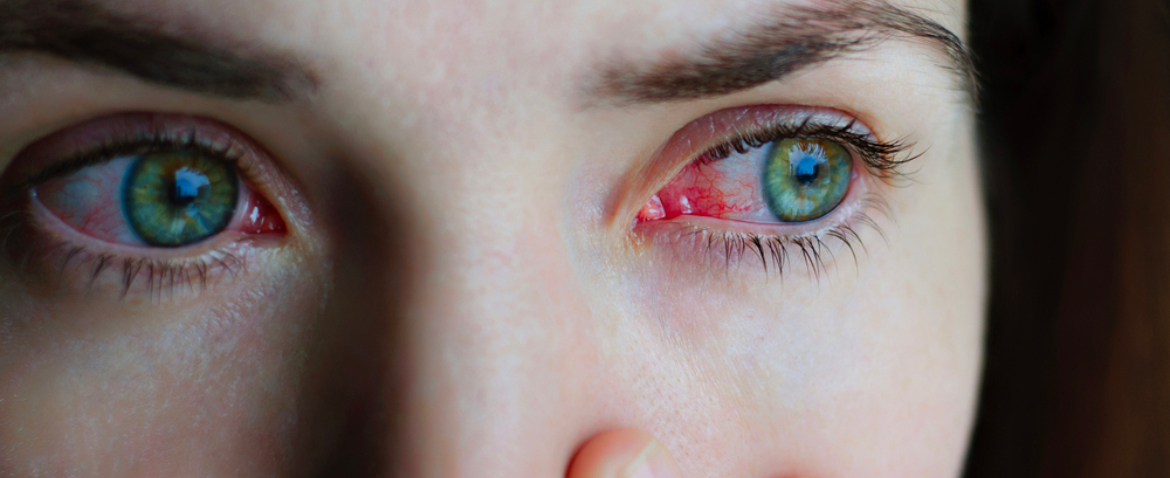Eye infections are diseases caused by bacteria, viruses, fungi, or parasites in the eye area. These infections can present with various symptoms such as redness, tearing, itching, and vision disturbances. If early diagnosis and appropriate treatment are not applied, they can lead to serious vision problems.
Common Eye Infections and Their Causes
Conjunctivitis (Pink Eye)
Causes: It can be bacterial, viral, or allergic. Bacterial conjunctivitis is usually spread through contact, while viral conjunctivitis often occurs alongside colds or flu.
Symptoms: Eye redness, tearing, itching, burning sensation, and discharge.
Treatment: While viral conjunctivitis can heal on its own, bacterial conjunctivitis requires antibiotic eye drops.
Blepharitis (Eyelid Inflammation)
Causes: Blockage of oil glands, bacterial or fungal infections.
Symptoms: Redness of the eyelid, flaking, itching, and burning sensation.
Treatment: Applying warm compresses, gently cleaning the eyelids, and using antibiotic ointments recommended by a doctor.
Keratitis (Corneal Infection)
Causes: Poor hygiene while using contact lenses, fungal, bacterial, or viral infections.
Symptoms: Severe eye pain, blurred vision, redness, and light sensitivity.
Treatment: Antibiotic or antiviral eye drops. In advanced cases, corneal transplantation may be required.
Stye (Hordeolum)
Causes: Bacterial infection of the oil glands.
Symptoms: Redness, swelling, and tenderness in the eyelid.
Treatment: Applying warm compresses and using antibiotic drops or ointments.
Endophthalmitis (Inner Eye Infection)
Causes: Bacterial or fungal infections occurring after eye surgeries or serious eye injuries.
Symptoms: Severe eye pain, vision loss, and swelling of the eye.
Treatment: Requires urgent medical intervention. Antibiotic or antifungal medications may be directly injected into the eye.
Ways Eye Infections Spread
- Hand Contact: Touching the eyes with unclean hands.
- Shared Towels and Makeup Products: Increases the risk of infection transmission.
- Contact Lenses: Not following hygiene rules can lead to bacterial spread.
- Swimming Pools and Oceans: Swimming in contaminated water can cause eye infections.
How to Prevent Eye Infections
- Wash your hands frequently and avoid touching your eyes.
- Use your contact lenses in a clean and sterile manner.
- Do not share towels, pillowcases, or makeup products with others.
- Avoid close contact with individuals who have an eye infection.
- Wear sunglasses to protect your eyes from harmful UV rays.
What Happens If Eye Infections Are Left Untreated?
If left untreated, eye infections can lead to severe complications:
Corneal Ulcer: Keratitis can progress and cause vision loss.
Chronic Dry Eye Syndrome: Infections may reduce tear production.
Vision Loss: Severe infections can damage eye structures and cause permanent damage.








.webp)
